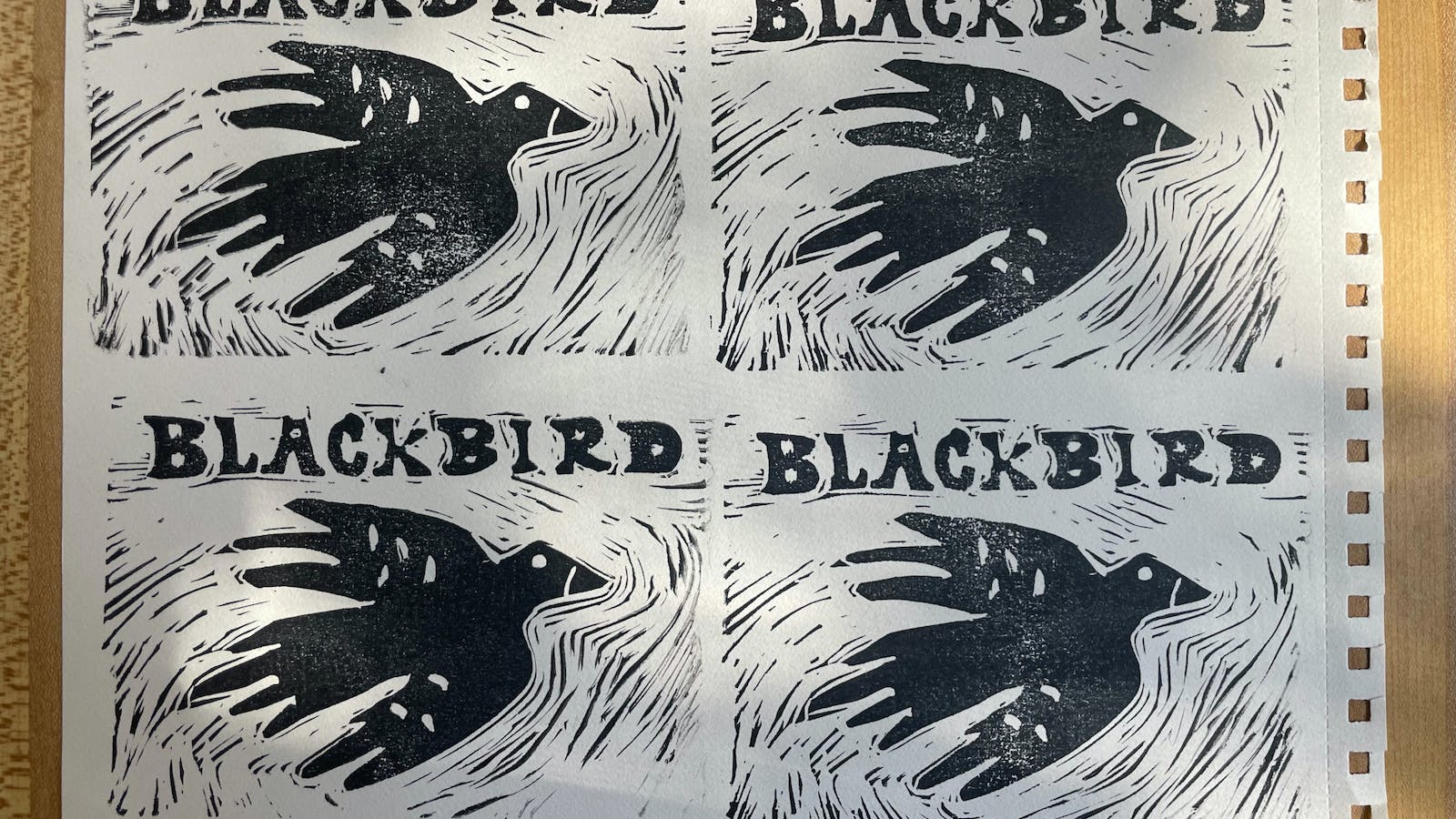
My name is Liv Cohen and I have one semester left at Middlebury College (I refuse to use the term super-senior Feb; I am sorry, it just makes me squirm, but that is beside the present point). The point is that I remember Middlebury in the fall of 2019 with all of the startling clarity of a terrified freshman. It was the last semester before the shit hit the fan, if you will, and one of the last semesters that Blackbird Literary and Visual Arts Journal was a vital part of campus life.
As I reflect on my time here, I realize that soon there will be no students left on campus who experienced Middlebury pre-pandemic; the days of Cabin, when one could still get nachos at the Grille after midnight and when we were sorted into commons system for housing, Hogwarts Style. Middlebury College has become a very different place over the course of the past four years. I suppose that is part of the beauty of college, the constant flux and flow and change. Yet, as I prepare to leave, I realize that some of the structures and traditions of pre-pandemic Middlebury will die in student memory.
Aside from the downfall of Atwater Breakfast, one of the unfortunate consequences of the pandemic was the decline and extinction of countless student-run organizations and clubs. The most experienced members of many clubs graduated during the spring 2020 lockdown while regular meetings and events were unable to happen, leaving a chasm of the knowledge necessary for the underclassmen to pick up where their predecessors left off. Some clubs fell to the wayside without the mentoring that would typically take place. Middlebury’s oldest literary and visual arts journal — Blackbird — was one such casualty. Blackbird was last published in the Spring of 2021. Soon, Blackbird will officially be lost in the collective memory of the student body come spring graduation.
For a liberal arts school, this is an enormous loss. At Middlebury, upholding the arts, and honing and celebrating student voices must be a priority. Thus, Emma Johnson (one of the last to be published in BlackBird) and I are resurrecting the Bird.
The arts and humanities are under threat at colleges across the country. The attempt by Middlebury to remove the creative nonfiction position from the English department speaks volumes on the declining value the institution places on the arts. A quick Google search about the statistics of humanities majors across the country reveals an overall decline across the board (see The New Yorker’s “The End of the English Major,” Wall Street Journal’s “The Decline of Liberal Arts and Humanities,” The Hechinger Report, etc). Or read Sarah Miller’s “In defense of the English Major” in The Campus for a thorough investigation and defense of this issue.
While institutional support falters, it falls to students to uphold and preserve the arts. The absence of Middlebury’s oldest literary and visual arts journal is not just a reflection of the post-pandemic world, but a vital loss within a pattern of decline of the arts at Middlebury College. As a humanities major, I often feel as though my work exists in a vacuum. It is valued in the classroom and by my professors but is never considered something to be explored and discussed past the safe walls of Axinn and Munroe. Similarly, my entire education within the humanities is generally seen as a stepping stone. The arts are no longer valued as inherently important but as some kind of means of reaching something more ‘serious’ or ‘real.’
Reviving Blackbird is a testament to the legacy of student creativity and art that once shaped the Middlebury community. As I begin my last semester, I want to leave a legacy that nurtures the arts that have been so integral to the shaping of my studies and myself. Picking up Blackbird from a two-year hiatus has been challenging. Yet, there is also a great opportunity for the journal to evolve and shift to reflect the current student body. The Board is exploring the ways in which the journal can be more accessible and fresh, whether that be with Zines, sharable PDFS or new forms of art. Blackbird is in a period of exciting evolution and rebirth that will provide new members with an unprecedented moment for creative license.
Blackbird is a place to share the work we hone in and out of the classroom, a place to experiment, and a place to celebrate the creative endeavors on this campus. In sum, Blackbird will celebrate student’s arts for the sake of arts.
To get involved with the crafting of the journal you can be a reader for the poetry, prose or visual arts boards, a layout editor, or help with spreading the word. If you are interested, reach out to [email protected] to be added to the email list. Or, if you want to be featured, submit your work! We are accepting submissions now for the fall issue, looking for short-form visual and literary art. You can anonymize your document and send all writing as a Word doc. Eternalize that poem, strange cartoon, self-portrait, essay, etc., and submit your work to [email protected]
